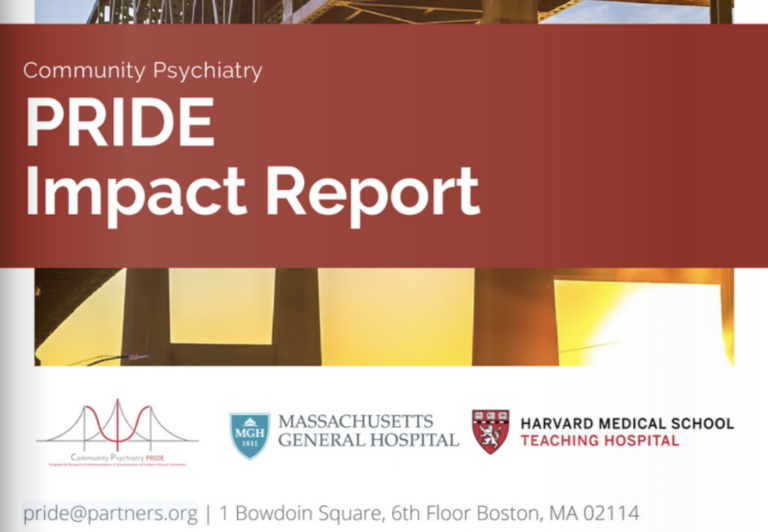Leaving the Therapist’s Office Behind: Getting Evidence-Based Emotion Regulation Skills to Youth with Criminal Justice System Involvement
Youth involved in the criminal justice system have unaddressed mental health needs, which have been shown to significantly increase their risk of re-offending and re-incarceration (1). Thus, it is a top priority to equip these youth with emotional health strategies to boost their mental health, overall functioning, and economic productivity (2). One strategy is Cognitive-Behavioral Therapy (CBT), a mental health treatment that teaches people to understand the connections between their thoughts, emotions, and behaviors and use skills to change unhelpful patterns that keep us stuck (3). Despite its proven effectiveness, it is often hard for criminal justice system involved youth to access CBT because of the lack of specialized, trained mental health providers available. It is estimated that an additional 250,000 mental health providers would be needed to sufficiently meet the demand for mental health services (4). To address this access problem, the mission of the Community Psychiatry Program for Research in Implementation and Dissemination of Evidence-based Treatments (PRIDE) at Massachusetts General Hospital is to partner with youth-facing community organizations to train non-mental health professionals to deliver evidence-based mental health strategies to the youth they work with. The goal is to increase the number of people that can deliver emotional health strategies, like CBT, to as many youth as possible, including the most vulnerable and at risk, such as youth with criminal justice involvement.

The MGH PRIDE 2020 Impact Report. Click here to view the full Report.
As an example of our partnerships, in 2014 PRIDE worked with Roca Inc, a community organization working to disrupt incarceration, poverty, and racism experienced by high-risk youth involved in the criminal justice system. The 5-year partnership focused on developing a CBT life skills program designed to be delivered by the Roca staff. Using the principles of community-based participatory research of mutual respect and active collaboration as a foundation, PRIDE and Roca engaged in an iterative process of developing, piloting, and adapting the CBT life skills program, with feedback from both the staff and youth to enhance its fit within the organization. The final CBT life skills program included 10 CBT skills, delivered by Roca staff both formally, in a group setting, and informally, as part of conversations on the go, in 15-45 minute doses. Both the Roca staff and youth reported high feasibility and satisfaction with the skills, seeing changes in their lives, relationships, and mental health challenges (5). The CBT program has also been shown to be effective in improving functional outcomes in the youth, with young men who practiced CBT having a 66% lower chance of unenrolling from the organization prior to program graduation, and a 65% higher chance of getting a job (6). Developed with sustainability in mind (7), Roca continues to implement this CBT life skills program with the youth they work with in their locations across Massachusetts and in Baltimore.
PRIDE continues to develop innovative ways to increase access to mental health strategies for high-risk youth. Applying user-centered design, we iteratively developed a new CBT skills program to increase usability and uptake across diverse organizations and settings. During the refinement process, we received feedback from organization leaders, frontline staff, and youth about the skills, and developed the TEB (Thoughts, Emotions, and Behaviors) Skills, which include five core CBT skills that have been shown to be effective across difficulties and populations (8). The TEB Skills include an open access curriculum, and a rigorous training and coaching program to equip our community partners with the knowledge and expertise to deliver the TEB Skills to the high-risk youth they work with. For example, we have partnered with three organizations in CT to infuse the TEB Skills within the organizations and equip the staff with the competency to deliver the skills to the youth that they serve, including those involved with the criminal justice system. To learn more about the work we do and to partner with us, please see our training institute website.

Co-Authors
Soo Jeong Youn, PhD
Director of Evaluation, MGH Community Psychiatry PRIDE
Twitter: @SYounPhD

Lillian Blanchard
Clinical Research Coordinator, MGH
Twitter: @LillianB97

Luana Marques, PhD
Associate Professor of Psychiatry, Harvard Medical School
Director, MGH Community Psychiatry PRIDE
President, Anxiety and Depression Association of America
Twitter: @DrLuanaMarques
References
- Yampolskaya, S., & Chuang, E. (2012). Effects of mental health disorders on the risk of juvenile justice system involvement and recidivism among children placed in out-of-home care. American Journal of Orthopsychiatry, 82(4), 585–593.
- Justice Policy Institute. (2014). $ticker $hock: Calculating the full price tag for youth incarceration. Available at: http://www.justicepolicy.org/uploads/justicepolicy/documents/sticker_shock_final_v2.pdf.
- Hofmann, S. G. (2011). An Introduction to Modern CBT: Psychological Solutions to Mental Health Problems. John Wiley & Sons.
- U.S. Department of Health & Human Services, Health Resources and Services Administration, Bureau of Health Workforce, National Center for Health Workforce Analysis. (2016). National Projections of Supply and Demand for Selected Behavioral Health Practitioners: 2013-2025.
- Valentine, S. E., Ahles, E. M., Dixon De Silva, L. E., Patrick, K. A., Baldwin, M., Chablani-Medley, A., Shtasel, D. L., & Marques, L. (2019). Community-based implementation of a paraprofessional-delivered cognitive behavioral therapy program for youth involved with the criminal justice system. Journal of Health Care for the Poor and Underserved, 30(2), 841–865. https://doi.org/10.1353/hpu.2019.0059.
- Marques, L., Youn, S., Zepeda, E. D., Chablani-Medley, A., Bartuska, A. D., Baldwin, M., Shtasel, D. L. (2020). Effectiveness of a Modular Cognitive-Behavioral Skills Curriculum in High-Risk Justice-Involved Youth. The Journal of Nervous and Mental Disease, 208(12):925-932
- Youn, S., Valentine, S. E., Patrick, K. A., Baldwin, M., Chablani-Medley, A., Aguilar Silvan, Y., Shtasel, D. L., & Marques, L. (2019). Practical solutions for sustaining long-term academic-community partnerships. Psychotherapy, 56(1), 115–125. https://doi.org/10.1037/pst0000188.
- Marques, L., LeBlanc, N.J., Bartuska, A.D., Kaysen, D., & Youn, S. (2021). The TEB Skills Empower Youth and Build Resilient Communities through Skills that Impact Thoughts, Emotions, and Behaviors. Accessed 6.16.2021. https://drluana.com/wp-content/uploads/2021/03/TEB-Curriculum_3.15.21_Formatted.pdf